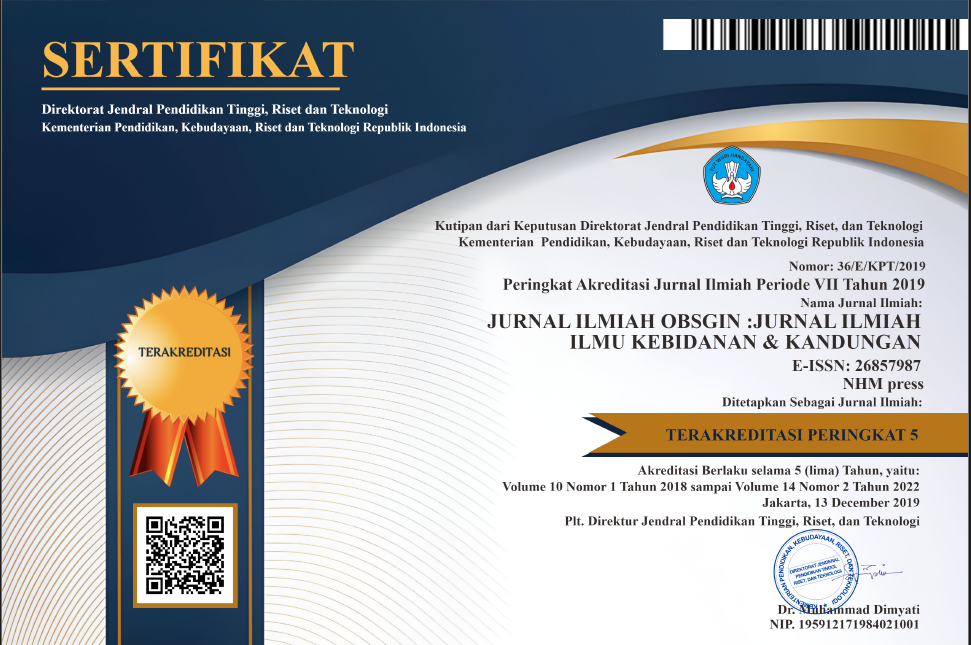Pengaruh Manajemen Laba Terhadap Kinerja Perusahaan di Sektor Kesehatan Selama Pandemi Covid-19
Abstract
The main objective of this research is to conduct empirical tests on the relationship between earnings management and company performance. The research objects are health sector companies listed on the Indonesia Stock Exchange (BEI) during 2017-2022. The research sample consisted of 72 financial report data originating from 12 companies selected based on purposive sampling. The earnings management proxy uses accrual earnings management and real earnings management. Accrual earnings management uses a modified Jones model proxy. Real earnings management uses discretionary cash flow, discretionary expenses and discretionary production costs as proxies. Company performance uses the Return on Assets (ROA) proxy. Based on the results of panel data regression using Eviews 10, accrual earnings management has a significant negative effect on financial performance. Furthermore, discretionary cash flow and discretionary expenses have a significant positive effect on company performance. Lastly, discretionary production costs have no effect on financial performance.
References
ACFE. (2020b), Fraud Examiners Manual, Association of Certified Fraud Examiners.
Agbaje, W.H. and Oloruntoba, S.R. (2018), “An Assessment of Impact of Financial Statement Fraud on Profit Performance of Manufacturing Firm in Nigeria: A Study of Food and Beverage Firms in Nigeria”, European Journal of Business and Management Www.Iiste.Org ISSN, Vol. 10 No. 9.
Alisyah, W.N. and Susilowati, L. (2022), “Comparison of Financial Performance in Health Sector Companies Listed on the Indonesia Stock Exchange before and During the Covid-19 Pandemic”, Peer-Reviewed Article Jurnal Keuangan Dan Perbankan, Vol. 26 No. 1, pp. 2443–2687, doi: 10.26905/jkdp.v26i1.6816.
Anagnostopoulou, S.C. and Stavropoulou, C. (2023), “Earnings management in public healthcare organizations: the case of the English NHS hospitals”, Public Money and Management, Vol. 43 No. 2, pp. 95–104, doi: 10.1080/09540962.2020.1866854.
Aqabna, S.M., Aga, M. and Jabari, H.N. (2023), “Firm Performance, Corporate Social Responsibility and the Impact of Earnings Management during COVID-19: Evidence from MENA Region”, Sustainability, Vol. 15 No. 2, p. 1485, doi: 10.3390/su15021485.
Chakroun, S., Ben Amar, A. and Ben Amar, A. (2022), “Earnings management, financial performance and the moderating effect of corporate social responsibility: evidence from France”, Management Research Review, Vol. 45 No. 3, pp. 331–362, doi: 10.1108/MRR-02-2021-0126.
Chaudhary, R., Bakhshi, P. and Gupta, H. (2020), “The performance of the Indian stock market during COVID-19”, Investment Management and Financial Innovations, Vol. 17 No. 3, pp. 133–147, doi: 10.21511/imfi.17(3).2020.11.
Colenda, C.C., Applegate, W.B., Reifler, B. V. and Blazer, D.G. (2020), “COVID-19: Financial stress test for academic medical centers”, Academic Medicine, Vol. 95 No. 8, pp. 1143–1145, doi: 10.1097/ACM.0000000000003418.
Garanina, T. (2023), “CSR disclosure and state ownership: implications for earnings management and market value”, Journal of Accounting in Emerging Economies, doi: 10.1108/JAEE-06-2022-0175.
Gonçalves, T., Gaio, C. and Ferro, A. (2021), “Corporate social responsibility and earnings management: Moderating impact of economic cycles and financial performance”, Sustainability (Switzerland), Vol. 13 No. 17, doi: 10.3390/su13179969.
Gong, J.J., Young, S.M. and Zhou, A. (2023), Real Earnings Management and the Strategic Release of New Products: Evidence from the Motion Picture Industry, Review of Accounting Studies, Springer US, doi: 10.1007/s11142-023-09793-6.
Herusetya, A., Sambuaga, E.A. and Sihombing, S.O. (2023), “Business strategy typologies and the preference of earnings management practices: Evidence from Indonesian listed firms”, Cogent Business and Management, Cogent, Vol. 10 No. 1, doi: 10.1080/23311975.2022.2161204.
Ibrani, E.Y., Faisal, F. and Handayani, Y.D. (2019), “Determinant of non-GAAP earnings management practices and its impact on firm value”, Cogent Business and Management, Cogent, Vol. 6 No. 1, doi: 10.1080/23311975.2019.1666642.
Kahloul, I., Grira, J. and Hlel, K. (2023), “The trilogy of economic policy uncertainty, earnings management and firm performance: empirical evidence from France”, Journal of Economics and Finance, Springer US, Vol. 47 No. 1, pp. 184–206, doi: 10.1007/s12197-022-09605-8.
Kothari, S.P., Leone, A. and Wasley, C. (2005), “Performance Matched Accruals Measures”, Journal of Accounting and Economics, Vol. 39 No. May, pp. 163–197.
Lim, H.J. and Mali, D. (2023), “An analysis of the positive effect of real earnings management on financial performance”, Asian Review of Accounting, Vol. 31 No. 2, pp. 284–316, doi: 10.1108/ARA-07-2022-0178.
Limarwati, D., Alfiyani, Y.S.R. and Firmansyah, A. (2023), “Earnings Management and Firm Value: Moderating Role of Independent Commissioner in Indonesia”, Substansi: Sumber Artikel Akuntansi Auditing Dan Keuangan Vokasi, Vol. 7 No. 1, pp. 12–22, doi: https://doi.org/10.31092/subs.v7i1.2105.
Mahrani, M. and Soewarno, N. (2018), “The effect of good corporate governance mechanism and corporate social responsibility on financial performance with earnings management as mediating variable”, Asian Journal of Accounting Research, Vol. 3 No. 1, pp. 41–60, doi: 10.1108/AJAR-06-2018-0008.
Rababah, A., Al-Haddad, L., Sial, M.S., Chunmei, Z. and Cherian, J. (2020), “Analyzing the effects of COVID-19 pandemic on the financial performance of Chinese listed companies”, Journal of Public Affairs, Vol. 20 No. 4, doi: 10.1002/pa.2440.
Renaldo, N. and Murwaningsari, E. (2023), “Does Gender Diversity Moderate the Determinant of Future Firm Value?”, Review of Economics and Finance, Vol. 21 No. June, pp. 680–689, doi: 10.55365/1923.x2023.21.72.
Roychowdhury, S. (2006), “Earnings management through real activities manipulation”, Journal of Accounting and Economics, Vol. 42 No. 3, pp. 335–370, doi: 10.1016/j.jacceco.2006.01.002.
Schilit, H.M., Perler, J. and Englehart, Y. (2018), Financial Shenanigans : How to Detect Accounting Gimmicks and Fraud in Financial Reports, The McGraw-Hill Companies, Inc.
Sudaryo, Y., Ns, D.H., Wardana, W. and Permana, O. (2023), “The Measurement Of Financial Reporting : Earnings Management and Firm Values”, International Journal of Advanced Multidiciplinary, Vol. 2 No. 1, pp. 72–82, doi: https://doi.org/10.38035/ijam.v2i1.
Tarjo and Anggono, A. (2020), “Abusive Earnings Management and Annual Report Readability”, Advances in Economics, Business and Management Research, Vol. 124, pp. 134–139, doi: 10.2991/aebmr.k.200305.061.
Tarjo, T., Anggono, A., Prasetyono, P., Yuliana, R. and Sakti, E. (2022), “Association between fraudulent financial reporting , readability of annual reports , and abusive earnings management : A case of Indonesia”, Investment Management and Financial Innovations, Vol. 19 No. 1, pp. 370–378, doi: 10.21511/imfi.19(1).2022.29.
Trabelsi, S. and Chalwati, A. (2023), “Poison pills adoption, real earnings management and IPO failure”, China Accounting and Finance Review, doi: 10.1108/CAFR-04-2023-0041.
World Bank. (2021), “How COVID-19 is changing the world: a statistical perspective Volume III”, The Committee for the Coordination of Statistical Activities (CCSA), Vol. 3.











